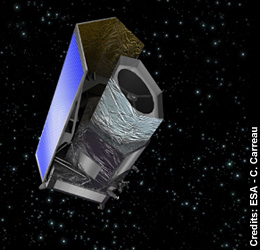Euclid mission – final approval

Today, ESA’s (European Space Agency) Science Programme Committee gave the final go for the Euclid space mission, which will move now into the full construction phase, the launch is set around 2020.
This mission is supported by nearly 1000 scientists from 100 institutes and is aimed at discovering the nature of dark matter and dark energy.
With the discovery of the cosmic acceleration of the Universe caused by dark energy in 1998 which was rewarded with the Nobel Prize for Physics in 2011 this space mission has enormous science potential. Also it will cast light on the dark matter particles, and the hope is that we will finally know the nature of this mysterious constituent of the Universe, a type of particles that interacts only with gravity.
Solar Orbiter and Euclid are the first medium-class missions in ESA’s Cosmic Vision 2015-2025 Plan and while Solar Orbiter will explore the bright part of the sky, the Sun, Euclid will explore the dark side of the sky. Euclid is a space telescope, and will map out the large-scale structure of the Universe with unprecedented accuracy. The observations will reveal the history of the expansion and the growth of the Universe, stretch across 10 billion light years.
Also as a personal note, the Romanian Space Agency – ROSA – is among the Euclid founding agencies and the Institute of Space Science (ISS) represents Romania in the Euclid Consortium.

Recent Comments